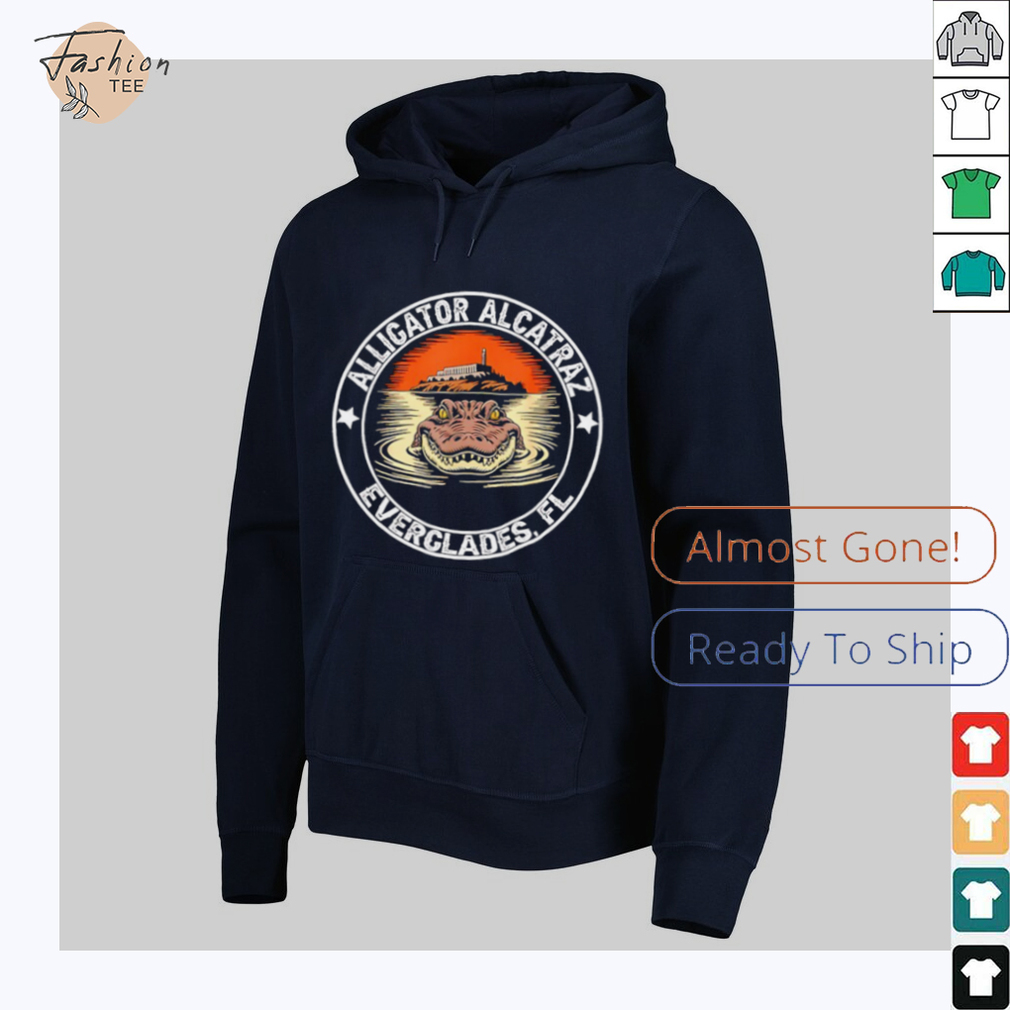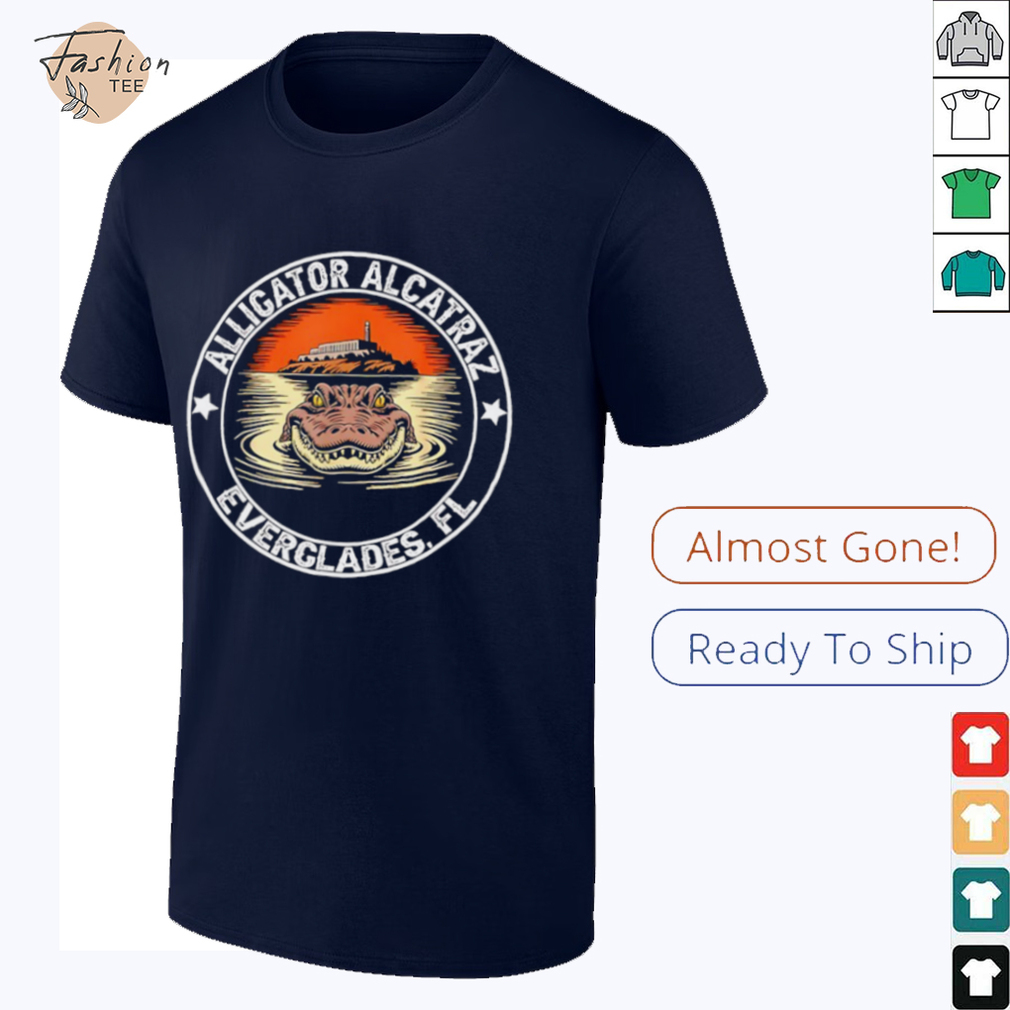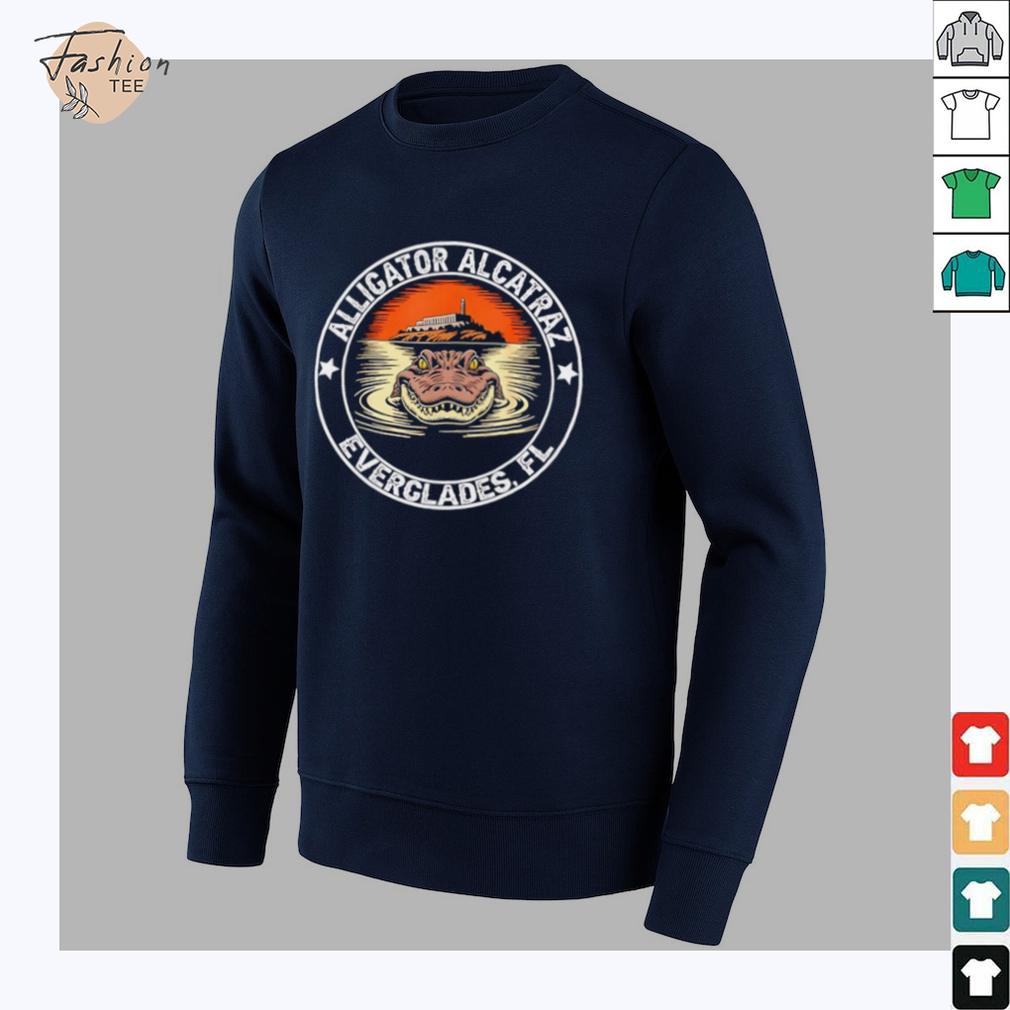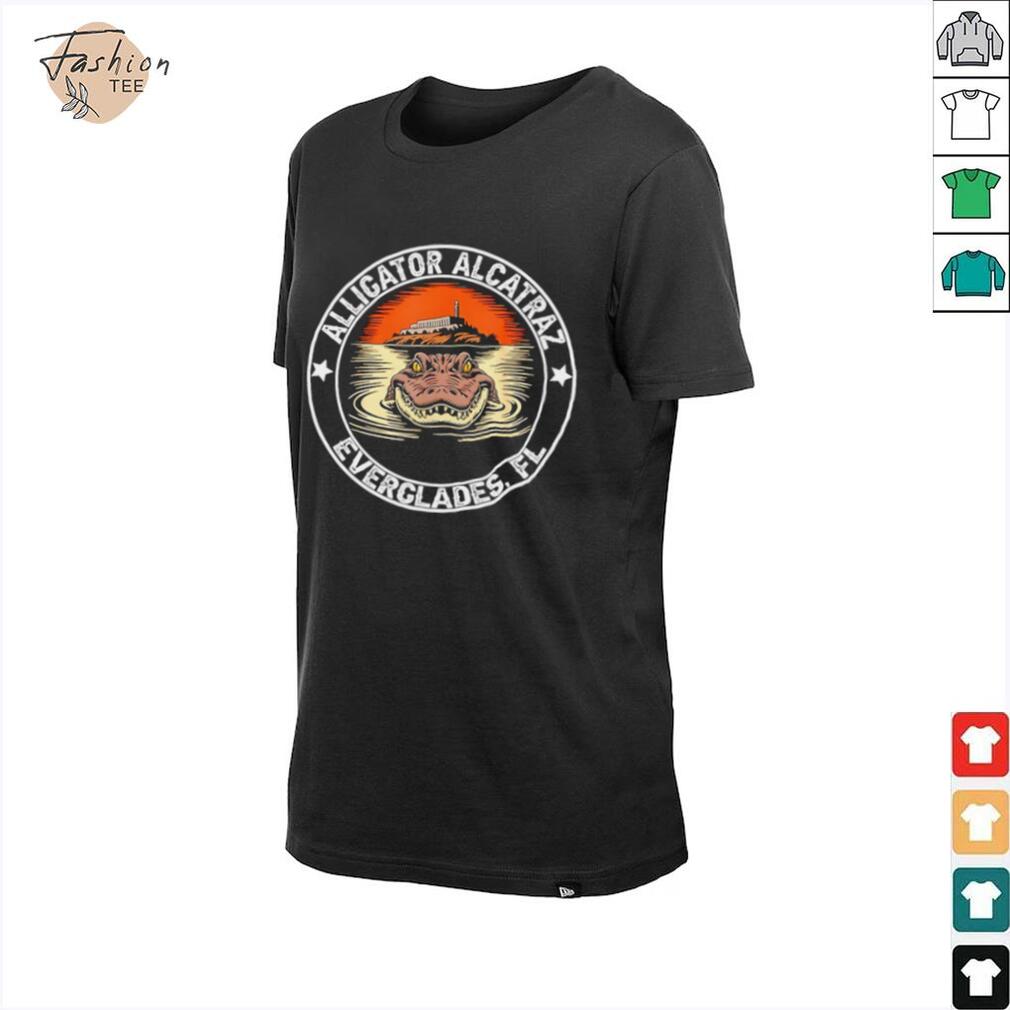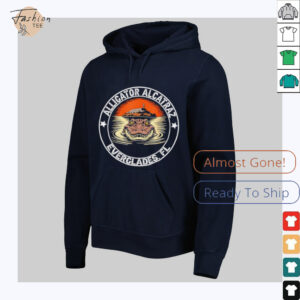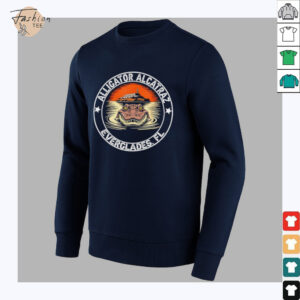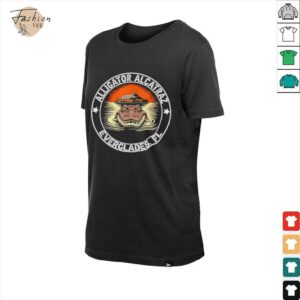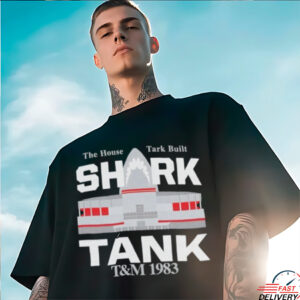The “Alligator Alcatraz Everglades Florida Shirt”: A Wearable Marker of a Controversial Site
The “Alligator Alcatraz Everglades Florida shirt” is a highly topical and impactful piece of apparel. This shirt directly references “**Alligator Alcatraz**”—the widely recognized informal name for Florida’s new immigration detention facility—and prominently features its geographical context within the **Everglades, Florida**. It’s designed for curious readers who want to understand the significance of this location and the controversy surrounding it, allowing them to engage with a pressing sociopolitical issue through a tangible item.
The garment serves as a direct commentary on the detention center established in the **Everglades** region of **Florida**. The name “Alligator Alcatraz” itself is a powerful semantic keyword, combining the dangerous allure of the native alligator with the notorious isolation of Alcatraz prison. This choice of naming, often championed by proponents of the facility, highlights the unique property of the site’s natural environment being leveraged as a formidable barrier. The shirt’s design is a clear statement, whether worn in support or protest, about this significant and contentious development in Florida’s approach to immigration enforcement, making it a relevant and up-to-date piece for public discourse.
—
“Alligator Alcatraz”: A Name That Speaks Volumes
The term “**Alligator Alcatraz**” is far more than a casual nickname; it’s a strategically chosen, informal designation for Florida’s new immigration detention facility. This prominent entity, which began operations in June 2025, is located at the Dade-Collier Training and Transition Airport, deep within the remote and ecologically fragile **Everglades** of **Florida**. The name itself is a powerful blend: it evokes the formidable and dangerous **alligators** that populate the surrounding wetlands, combined with the historical notoriety of **Alcatraz**, the infamous maximum-security federal prison renowned for its inescapable isolation.
Florida Attorney General James Uthmeier, who publicly coined the term, along with Governor Ron DeSantis and former President Donald Trump, actively promoted the idea that the facility’s unique environment contributes to its security. Trump, during a recent visit, even jested that the site benefits from “bodyguards and cops that are in the form of alligators. You don’t have pay them so much.” This highlights the controversial reliance on natural hazards as a deterrent. The rapid construction of the facility, often bypassing environmental reviews, has drawn significant criticism from human rights organizations, environmental groups, and Native American leaders, who condemn it as an “inhumane makeshift prison camp” that threatens both detainees and the delicate ecosystem of the **Everglades**.
—
The Everglades, Florida: A Contested Landscape for Detention
The specific mention of the “**Everglades, Florida**” on the shirt is crucial. The **Everglades** is a unique and globally significant wetland ecosystem, often called the “River of Grass.” It’s home to diverse wildlife, including the formidable alligator, and plays a vital role in Florida’s water supply and biodiversity. However, this shirt places the **Everglades** in a new and controversial context: as the site of a mass immigration detention center.
The decision to build “Alligator Alcatraz” in such an environmentally sensitive and geographically challenging location has sparked intense debate. Environmental groups warn of irreparable damage to the delicate ecosystem, while human rights advocates raise concerns about the living conditions for detainees in a remote, naturally hazardous environment, far from legal aid and public oversight. The choice of location becomes an emotional risk for those who value environmental preservation and human dignity, turning the serene landscape of the **Everglades** into a symbol of contention. This unique property of the facility—its deeply problematic placement—makes the location itself a viral trigger, prompting strong reactions from various stakeholders. Here’s the part they didn’t tell you: the construction was initiated under emergency declarations, allowing the state to bypass many standard permitting processes that would typically protect such sensitive lands.
—
Product Value and Fast Delivery: A Statement for the Engaged Citizen
The “Alligator Alcatraz Everglades Florida shirt” offers significant product value for consumers who seek to wear their engagement with current events. In 2025, with intense national and international focus on immigration policy and the controversial “Alligator Alcatraz” facility, merchandise that directly references these issues is highly relevant. This shirt provides an up-to-date and visually direct way for individuals to express their awareness or stance on Florida’s immigration approach. Its value lies in its timeliness and its ability to act as social proof, immediately identifying the wearer as someone attuned to important political and humanitarian discussions.
Online retailers prioritize fast delivery for such topical and impactful designs, ensuring that consumers can acquire and wear these shirts quickly to maximize their relevance. This rapid availability enhances the shirt’s function as a form of public expression and allows wearers to participate in ongoing dialogue. If you like to zoom in this way, you can also refer to some popular designs that address social justice issues or controversial government policies. For more variety, you can pair this with a fan favorite model that explicitly calls for change or protests the facility, such as the “End Inhumane Detention Alligator Alcatraz Protest Shirt”, which offers a contrasting, critical viewpoint. I am also one of the most popular customers who consistently seeks out apparel that sparks meaningful conversations about current events.
—
Beyond the Shirt: The Unfolding Story of Immigration and the Environment
The “Alligator Alcatraz Everglades Florida shirt” is more than just a piece of apparel; it’s a tangible symbol of a complex and multifaceted issue. By bringing together the controversial concept of “Alligator Alcatraz” with the unique and sensitive environment of the **Everglades, Florida**, the shirt encourages deeper reflection on the human and environmental costs of current immigration policies. It highlights the power of clothing to serve as a medium for public commentary, prompting discussions about human rights, ecological preservation, and the future of immigration in the United States.
As the legal challenges, environmental reviews, and humanitarian concerns surrounding this facility continue to unfold, such expressive garments will remain a critical part of public discourse. They allow individuals to wear their convictions, contributing to a broader understanding of the issues at stake. This fascinating intersection of policy, environment, and wearable statements creates a conversation worth continuing, isn’t it?

